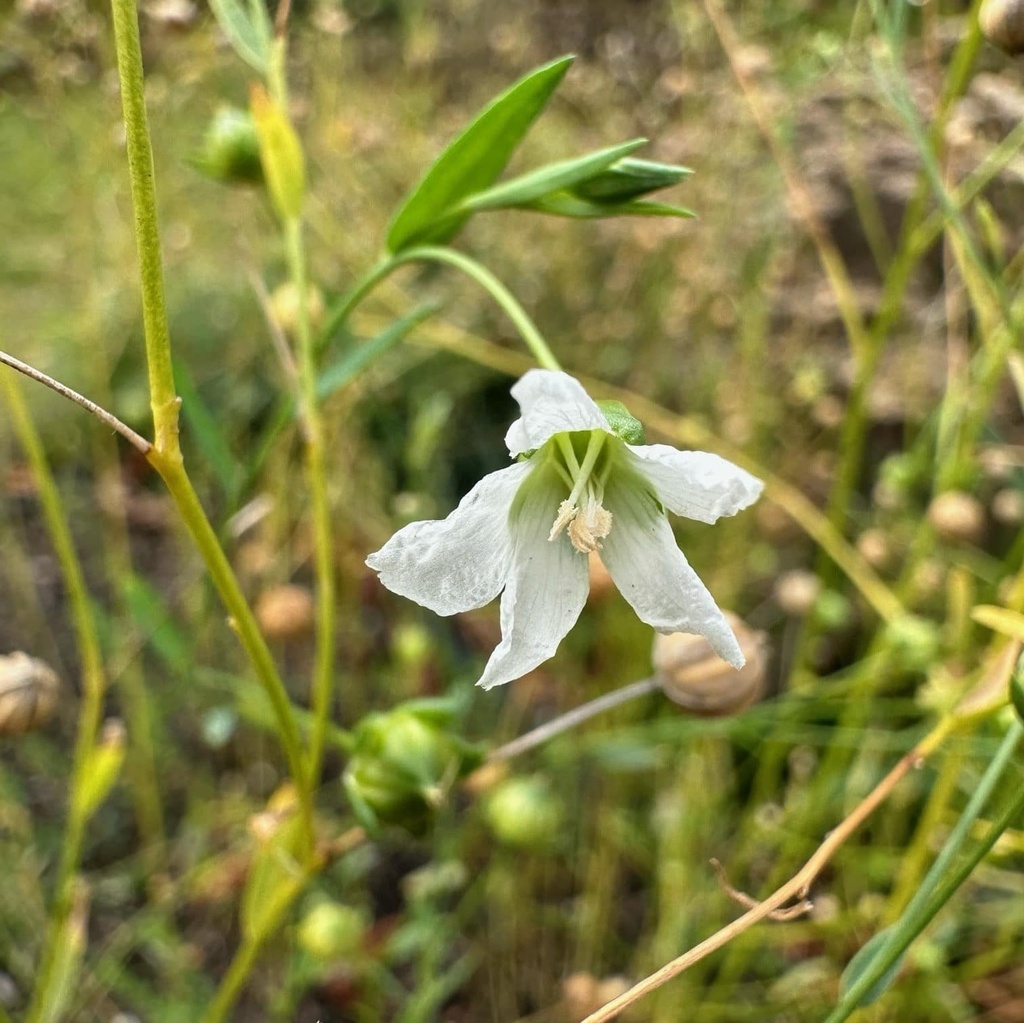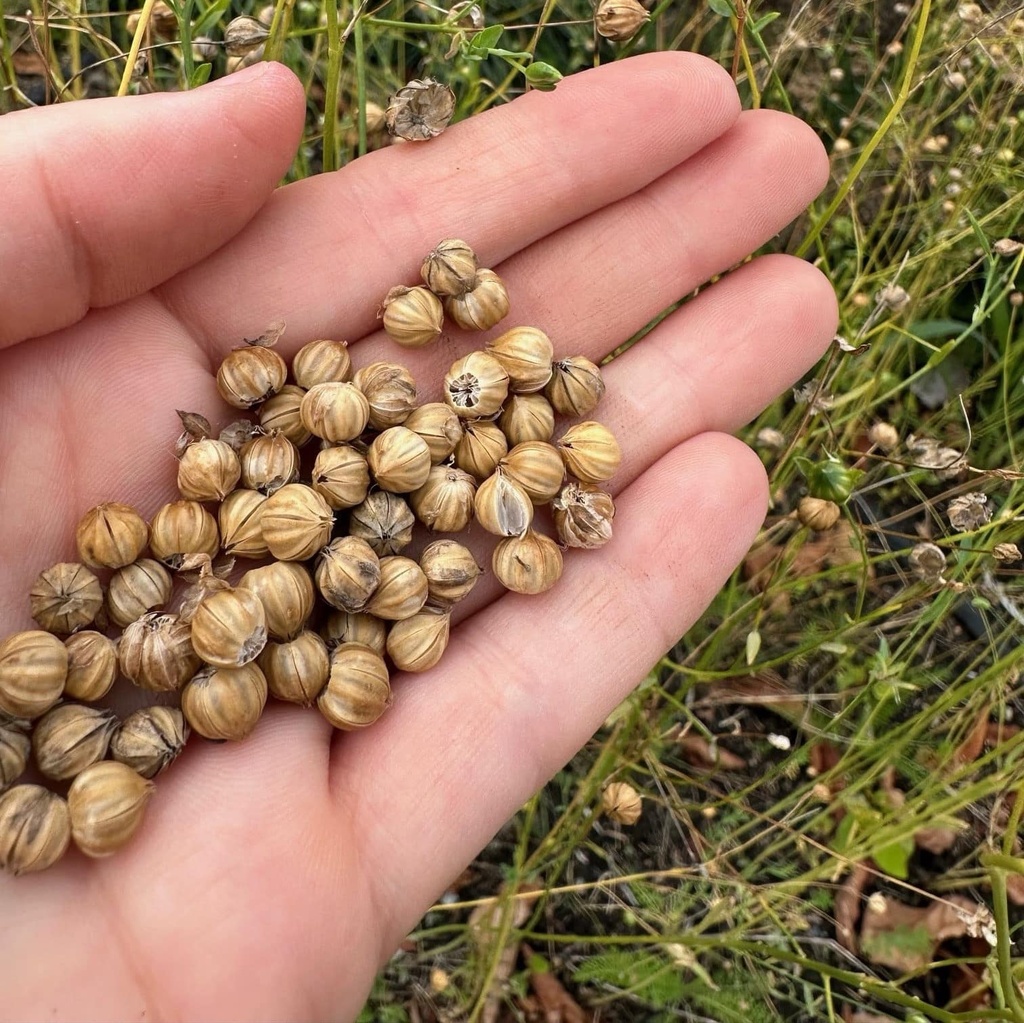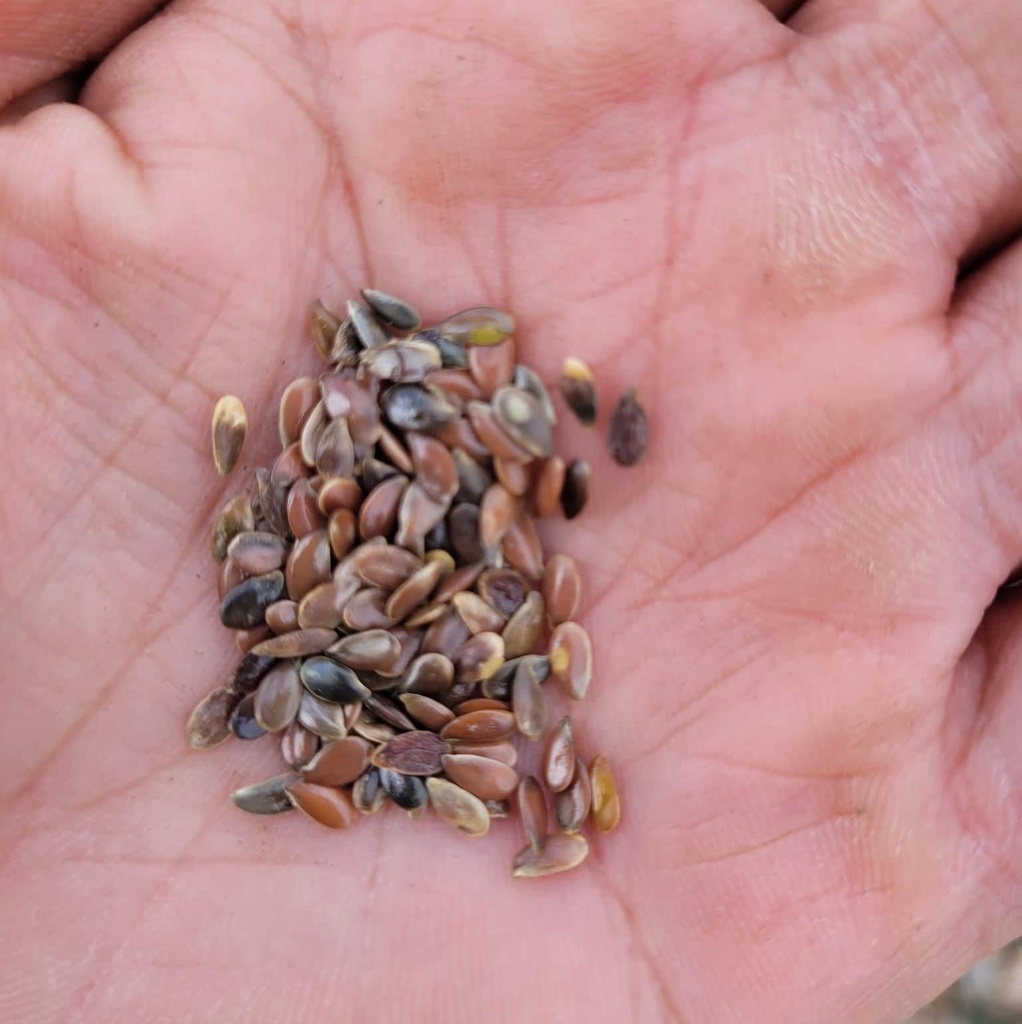Palestinian flax (Linum usitatissimum)
Avant l’introduction du coton et des fibres synthétiques, le lin occupait une place très importante dans les ménages québécois d’antan. Il était utilisé partout, du drap aux bas! Et même avant ça, cette plante a toute une histoire! Le lin fut probablement la première fibre végétale à être tissée. Il aurait d’abord été domestiqué dans la région du Croissant fertile. Des restants datant de 36 000 ans on été trouvés dans une grotte en Géorgie. Ce fut aussi un textile de prédilection en Égypte antique. La fibre donne un tissu souple, léger, absorbant, thermorégulateur et durable, ce qui explique bien sa popularité.La plante est facile de culture et ses fleurs bleues sont joliment délicates. Les fibres se trouvent au coeur de la tige, et sont extraites par un processus de décomposition contrôlée appelée rouissage.
Le lin de Palestine fait partie du Programme de sauvegarde du lin textile. Il est cultivé pour ses fibres.
ENTRETIEN ET AUTRES CONSIDÉRATIONS
Peu d'informations existent sur ce lin. Il provient de Palestine, était cultivé avant 1955.
Nombre de semences par sachets : 200
| Quantity: Envelope of about 200 seeds |
| Plant type: Annual |
| Family: Linaceae |
| Flower color: Blue |
| Plantation: In the garden after the risk of frost |
| Sowing: Directly in the garden |
| Days to maturity: 100 days |
| Germination: 7 to 21 days |
| Depth: On the surface |
| Exposure: Full sun |
| Watering: Regular |
| Soil: All types of soils |
| Shape: Erected |
| Width: 25 cm |
| Height: 1 m |






![[108] Nathalie flax (Linum usitatissimum)](/web/image/product.product/823/image_128/%5B108%5D%20Nathalie%20flax%20%28Linum%20usitatissimum%29?unique=afca737)
![[282] Norwegian flax (Linum usitatissimum)](/web/image/product.product/957/image_128/%5B282%5D%20Norwegian%20flax%20%28Linum%20usitatissimum%29?unique=d8f2ea4)
![[290] Roumanian flax (Linum usitatissimum)](/web/image/product.product/956/image_128/%5B290%5D%20Roumanian%20flax%20%28Linum%20usitatissimum%29?unique=c1e8904)